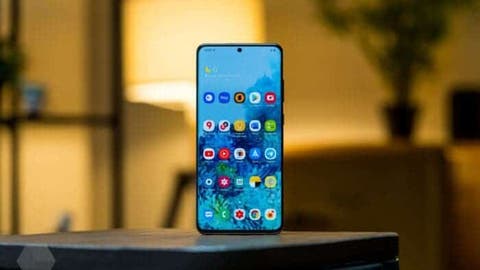Android phones are about to become an integral part of our life, and they really serve as very good tools for productivity, entertainment, and communication. While most of us use our smartphones to perform standard tasks like social media, messaging, calling, and surfing, there are plenty of unknown features and capabilities that can enhance your Android experience.
Guided by the less-known “superpowers” explained below, you can enhance productivity, strengthen security, and realize all that your Android device is capable of.

This post will discuss five secret superpowers of an Android smartphone that you should start leveraging, effective immediately, to up your game in the world of smartphones.
Automate Tasks Using Google Assistant and Routines
Though Google Assistant is something almost every user of an Android handset has used, few of them actually realize how much automation power it holds. With Google Assistant routines, you could have your smartphone automatically do some tasks for you, thus saving you from repetitive actions.
Google Assistant Routine: What is it?

With Google Assistant Routine, you could use voice command for one task at a time or many various actions at one more different time. Daily tasks such as sending messages, changing brightness, playing music, and even turning your Wi-Fi off when going outside your house may be automated without making you do something.
How to Set Up Routines for Google Assistant:
- Say “Hey Google” or press and hold the home button to invoke the Google Assistant. Tap your profile picture located on the upper right area of the screen to bring up settings. Scroll down to the “Routines” menu item. You have to create your routine by stating what you want your phone to do, or select from one of several that are prebuilt. Best Uses for Google Assistant Routines
- Morning Routine: Having your favorite news podcast played, including daily reminders, and Google Assistant checking the weather by default.
- Nighttime Routine: Lock your phone automatically when going to bed; turn off brightness and play sleep music.
- Commute Routine: This will start playing your commute playlist, ensure that messages are viewed while driving hands-free, and navigate your phone to work.
Google Assistant Routines can help you save more productivity time, shave off waiting time, and make your usual tasks all easier.
Screen Pinning to Preserve Privacy
Have you ever given your phone to someone to look at a picture or make a call and been afraid that they would either snoop through your private applications? Well, one of the cool hidden gems in Android is this Screen Pinning function that locks your phone to one application and forbids access to other applications or data.
Screen Pinning: What Is It?
A feature on Android smartphones, “screen pinning” locks your device to a single app when you give it to someone else, so they can’t access anything else. They’ll need your fingerprint or PIN to let you out.
How to Make Screen Pinning Active and Useful
- Head into Settings > Security > Advanced > Screen Pinning.
- Enable the feature by toggling the slider on. For added security, before the unpin, prompt for unlock pattern.
- To open Overview screen or recent applications, swipe up from bottom or tap icon after opening the desired app to be pinned
- Tap app icon on top and select Pin
Best Apps to Use for Screen Pinning:
- Photo Exchange: When showing them pictures, have the gallery app pinned so no one inadvertently swipes through your files.
- When you do give your kid permission to use your phone, just for playing or entertaining, flip it into “Kids Mode” so they could only have access to games or instructional apps and nothing else.
- Temporary Calls: Allow someone to use an app or make a call without actually fully giving them the controls of your phone.
One easy way to keep control and privacy when sharing your Android device with others is to use screen pinning.
Emphasis Mode and Digital Health for Efficiency and Harmony
Distractions abound in the fast-paced digital world of today, particularly on smartphones. Fortunately, Android’s Digital Wellbeing and Focus Mode features can help you recover control of your time and productivity by minimizing distractions and promoting healthy smartphone usage.
What does Digital Wellbeing actually mean?
It is a feature set that helps you understand how you use your device and develop good habits. Its features include Focus Mode, setting screen time limits, and app usage.
How Focus Mode Works: You can enable Focus Mode when you are working or studying to temporarily disable distracting apps like gaming apps, social media, and messaging services. Once enabled, these apps will be silenced along with their notifications until you disable Focus Mode.
To access and enable Focus Mode, follow this route: Settings > Digital Wellbeing & Parental Controls.
Tap on Focus Mode and choose the apps you intend to restrict during sessions.
Enable the Focus Mode directly from the Digital Wellbeing dashboard or set a quick settings panel shortcut.
Other Features of Digital Health
- App Timer: Establish daily time limits for the app. When you reach your limit, the app will be unavailable for the remainder of the day.
- Bedtime Mode: It automatically reduces screen brightness and silences notifications during times that you should be sleeping.
- Weekly Reports: These give you insights into how much time you have spent using different applications and provide suggestions for adjusting your usage pattern.
This, in turn, can lead to increased productivity and better mental health by helping you have a healthier relation with your phone through the Focus Mode and Digital Wellbeing.
Developer Options Uncovers Advanced Controls
Although the majority of Android users is used to living with default settings, one nice looking concealed menu on Android goes by a name: Developer Options. This menu is filled with advanced controls which you can use to tweak animations, enhance the speed of your smartphone, and gain access to robust debugging tools.

How to Enable Developer Features:
Go to Settings, then head to About Phone.
Locate the Build Number and tap on it seven times. You will get a toast message stating, “You are now a developer!”
Head back to Settings, and now you will notice the Developer Options entry.
Best Developer Options to Enable:
- Window Animation Scale: You will definitely want to reduce or turn off animations to achieve better performance on your phone. If you want quicker opening and closing of apps, you can set Window Animation Scale at 0.5x or Animation Off.
- Limit the amount of background applications running in your phone for higher performance and extended battery life.
- Mock Locations: Test or access features that are only available in a certain region using mock location applications.
- Keep Your Phone Awake: When charging, keep your phone’s screen up to read or use as a monitor.
When to Use Developer Options
- The turning off of animations can improve gameplay performance and may give the players a notion that the phone is faster.
- USB debugging: Advanced troubleshooting and making of an app is done by enabling USB debugging.
- Personalization: You are able to make each feature of your phone personalized in your way to meet your performance and style needs.
- Open the Developer Options on your Android for opening up a number of customizations and controls.
For file transfer, utilize nearby share In an Instant
With the feature of Nearby Share by Android, file sharing between Android devices or even with a PC was never easier. One can quickly share files, links, and images to other devices in proximity of this in-built feature without needing additional software installation or even access to the internet.

Nearby Share: What is it?
On Android, this is the feature called Nearby Share, which allows you to communicate between devices directly via Bluetooth and Wi-Fi and transfer files securely over the air to devices around you. This will work with Android tablets, smartphones, and Chromebooks, while Windows PC support will be due very soon.
How to Use Nearby Share
Open the content or information, such as a document, photo, link, etc., that you want to share.
Tap the Share icon then select Nearby Share.
The list will pop up with devices around you; choose the device you want to send the file across to. The transfer will be prompted for acceptance by the receiver.
Benefits of Using Nearby Share
- No Data Required: This keeps your mobile data intact since the transfers are done offline.
- Cross-platform sharing across Chromebooks, Android phones, and other supported devices.
- Transfers go through pretty fast, securely, and under your permission as to who sees your device’s privacy settings.
It is one of the most useful yet unknown features of an Android smartphone, which comes in the form of Nearby Share: what you need to share media, links, or even large files with your friends and colleagues, or with other devices in a split second. Conclusion: Learn How to Get Most out of Your Android Device.
Unlock the Full Potential of Your Android Device
Most of us never get to actually explore the various amazing features hidden within Android smartphones. From features that boost productivity, such as Focus Mode, to those that keep private things private, such as Screen Pinning, to Google Assistant Routines that automate chores, these are the secret superpowers that completely upend how you use your device every single day.

Mastery and learning of these features will definitely enhance the experience one is going to have with a smartphone and significantly increase the power of your Android by making it work harder for you through making the experience far more efficient and enjoyable. The main way you will be able to unlock your Android smartphone to its full potential is by discovering these general nuggets of functionality that can be done in order to speed up the file transfer, securing of data, or optimization of efficiency.
